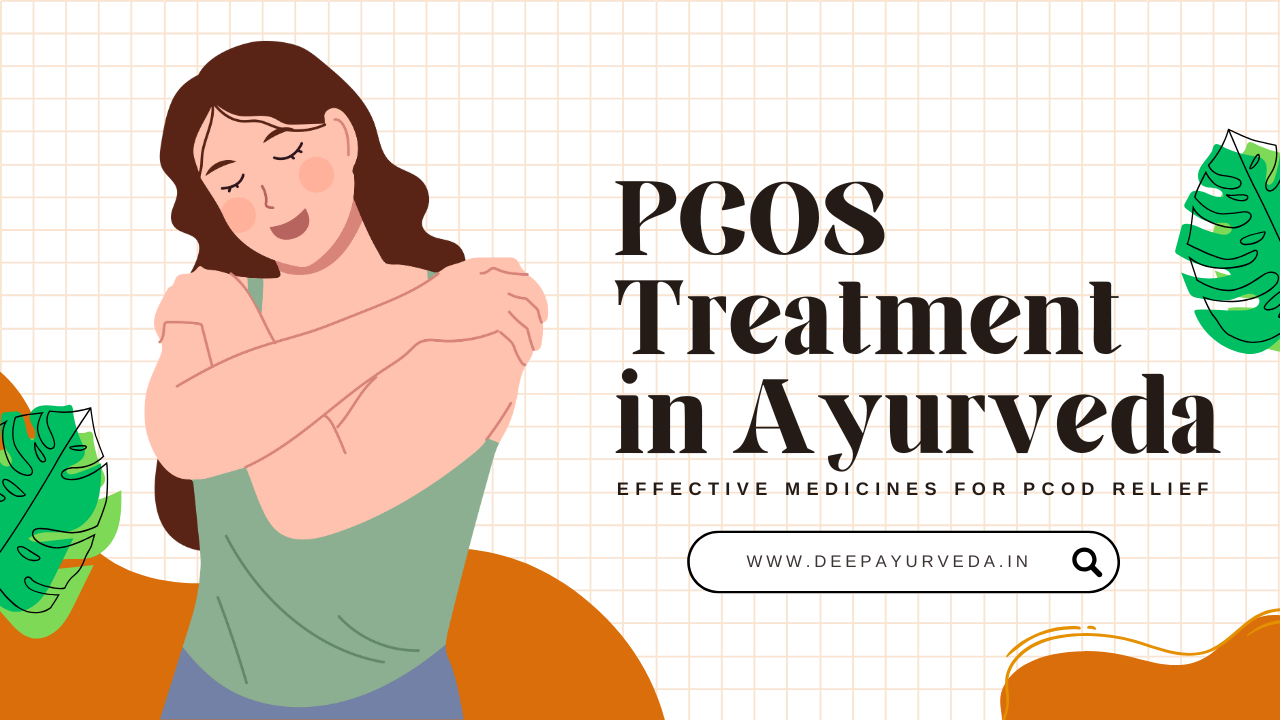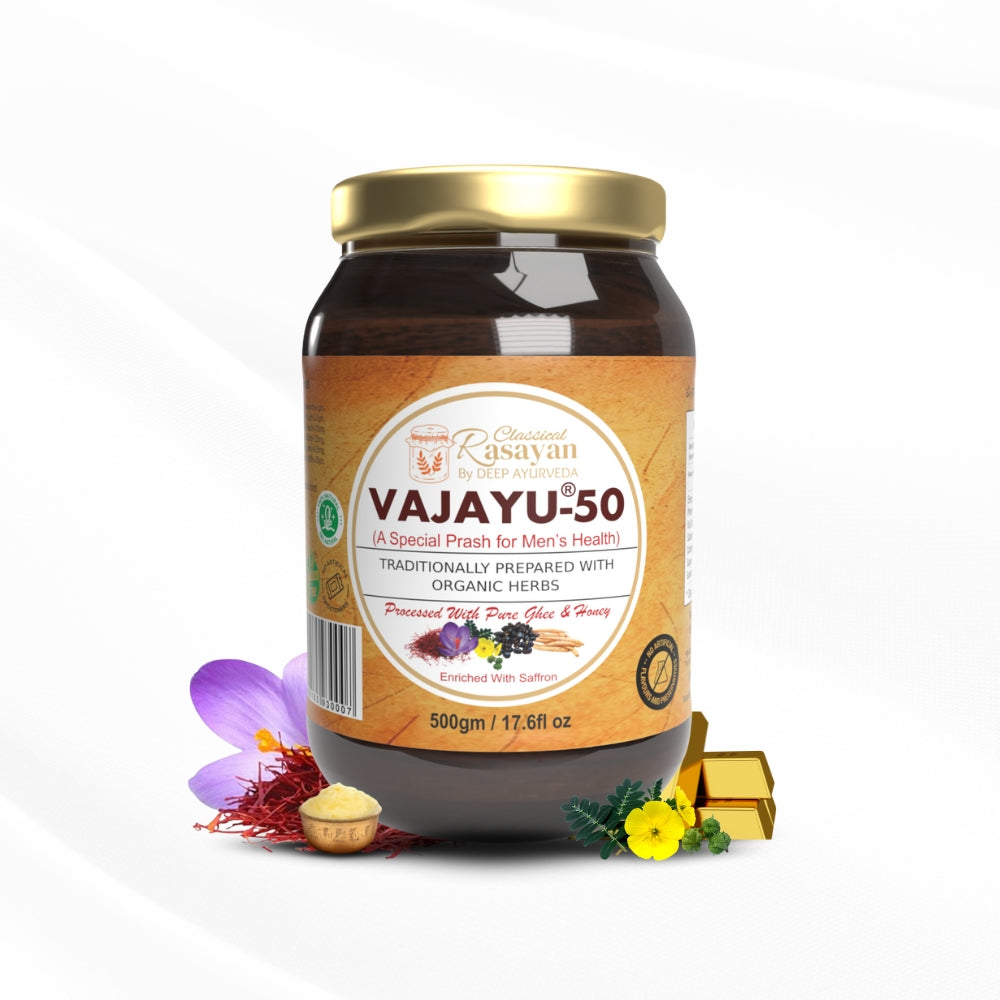The easiest and most reliable way to treat a chronic condition is to return to time-tested traditions. When it comes to PCOS treatment, Ayurveda offers a holistic, balanced approach that not only alleviates symptoms but also addresses the root cause. In fact, a well-planned PCOS diet in Ayurveda can help restore hormonal harmony naturally.
Ayurveda, the world’s oldest holistic healing system, views food as more than just nourishment; it sees it as medicine. PCOS (polycystic ovarian syndrome) is seen as a reflection of deeper imbalances in your body—particularly in your doshas, digestion, and lifestyle. That’s why PCOS treatment in Ayurveda focuses on restoring those imbalances rather than merely masking symptoms.

How Ayurveda Explains PCOS
PCOS is often caused by a combination of high androgens, insulin resistance, poor lifestyle choices, and chronic stress. From an Ayurvedic perspective, it primarily results from imbalances in the Kapha and Pitta doshas, along with a weak digestive fire (Agni).
- Kapha imbalance leads to sluggish metabolism, weight gain, cyst formation, and irregular menstrual cycles.
- Pitta imbalance causes hormonal disturbances, acne, mood swings, and inflammation.
- Weak Agni (Mandagni) results in the buildup of ama (toxins), blocking reproductive channels and disrupting hormonal communication.
In Ayurveda, the first step in PCOS treatment isn't restrictive eating; it’s about improving digestion and reducing toxins.

Ayurvedic Ways to Rekindle Agni
To begin your healing journey, here’s how to naturally strengthen your digestive fire:
- Sip warm water throughout the day.
- Include ginger, cumin, or fennel in your meals.
- Eat only when genuinely hungry.
- Avoid overeating and cold/raw foods.
- Use ghee in moderation to nourish and support Agni.
Once Agni is restored, your body can absorb nutrients properly, making your PCOS diet in Ayurveda more effective.

What to Eat (Pathya Ahara)
For PCOS treatment in Ayurveda, it’s important to choose foods that balance Kapha and Pitta, support digestion, and nourish your reproductive system. Recommended foods include:
- Leafy greens (spinach, methi)
- Root vegetables (carrot, beetroot, sweet potato)
- Cooling vegetables (bottle gourd, ash gourd)
- Fruits like apples, kiwis, and berries
- Healthy fats such as ghee and seeds (flax, pumpkin, almonds)
- Spices like cinnamon, turmeric, and fenugreek, which have anti-inflammatory and hormone-balancing properties.
You can also support your healing with Ayurvedic medicine for PCOD, such as Krishna’s She Care Juice, a herbal tonic formulated for hormonal and digestive balance.

What to Avoid (Apathya Ahara)
Equally important is avoiding foods that aggravate Kapha or create ama:
- Sugar-laden foods (pastries, ice cream).
- Dairy (if digestion is weak).
- Deep-fried or processed foods.
- Excessively salty or packaged snacks.
- Cold beverages and late-night eating.

Ayurvedic Lifestyle (Vihara) for PCOD Relief
No PCOS treatment in Ayurveda is complete without lifestyle adjustments. Ayurveda teaches that health isn’t just about what you eat—it’s about how you live. Late nights, poor sleep, emotional stress, and irregular habits only exacerbate PCOD.
Here’s how to align your lifestyle with nature:
- Wake up early and follow a consistent sleep schedule.
- Incorporate light exercise or yoga.
- Eat your meals on time.
- Avoid excessive screen time and stress.
- Include mindful routines like Abhyanga (self-oil massage) and pranayama.
These small yet powerful shifts can significantly enhance your PCOS diet in Ayurveda and the effects of Ayurvedic medicine for PCOD.
Final Thoughts
You’ve probably heard advice like "just lose weight" or "cut carbs" to manage PCOS. But PCOS is not merely a dietary issue—it’s a mind-body imbalance. The best way to address it is through the ancient wisdom of PCOS treatment in Ayurveda.
By rekindling your digestive fire, choosing nourishing foods, avoiding harmful habits, and using effective Ayurvedic medicine for PCOD, you can find lasting relief. Your body isn’t broken—it’s just out of sync. Ayurveda can help restore it to its natural rhythm.






